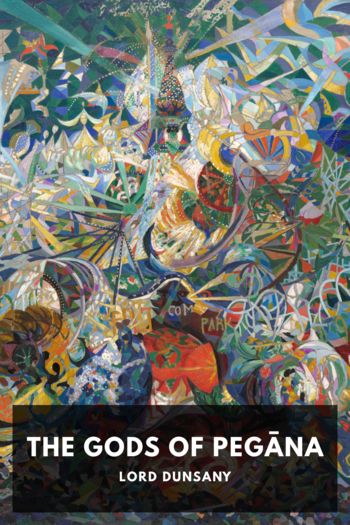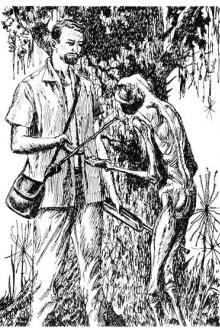Tarashana by Rachel Neumeier (best novels to read for students .TXT) 📗

- Author: Rachel Neumeier
Book online «Tarashana by Rachel Neumeier (best novels to read for students .TXT) 📗». Author Rachel Neumeier
I nodded. I could think of some things that would never be well, but this was not one of my concerns. I knew the gods had been kind beyond any possible expectation, and I trusted that when the time came, they would be generous. I had not thought to ask anything until Tano said this, but now I found I wanted to know other things. I sat down, gesturing that he should sit too, and said, “Tell me about the starlit lands. Have the Tarashana reclaimed all their country?”
He was glad to tell me. “Yes, Ryo, they say so. They forced the Saa’arii far back to the north and did something that will make it very hard for them to come out of their sunless sea another time. I do not know what they did; some manner of sorcery. Did you know the Saa’arii live on great floating islands, that they make these islands and then build their towns on them and live there?”
I had not known this. I had not known anything about the Saa’arii, and it had not occurred to me to ask the Tarashana. Now I felt curiosity stir. “Is that why they wanted to take the starlit country? Because that seemed easier to them than making islands?”
“Saja-Serenestriel—a woman who comes sometimes and does not mind questions—she says she thinks there was a war, and the Saa’arii that lost needed to go somewhere else and so turned toward the starlit country.”
Ah. That at least might offer some reasonable explanation for what they had tried to do. I offered no comment, only nodded. I thought perhaps I might ask the Tarashana about those people, but now I asked, “Has Etta recovered yet?”
“She is better every day,” Tano said earnestly.
“Iro is helping her?”
“Iro, and ... and her brothers.” He hesitated. “Your younger brother misses you very much, Ryo. He is sorry for your absence. He does not set fault against you for anything.” My expression must have changed, because he said quickly, “I beg your pardon! Forgive me. I meant no offense.”
I could not answer at once. For some time, for the whole time we had sparred, I had forgotten everything that had happened. Or, of course I had not forgotten anything—that was impossible—but for the time, I had forgotten to mind it. Thinking about the Tarashana and the Saa’arii had brought some of that back, but not all of it. Now all my anger and unhappiness returned in a sickening rush. I said harshly, “I do not want to see Raga. I do not want to see you either. Do not come here again.” Getting to my feet, I turned and went into the house.
I thought I had at last persuaded everyone to leave me alone—it seemed to me I must certainly have succeeded in that aim—and I thought I was glad of that, except I was not glad of anything. I had half expected Tano to disobey my order to stay away. But he did not return.
But after some time had passed, I heard someone else coming. Not Tano. An older man. Someone with heft to him. A light rain was falling and the damp muffled the sounds of his steps, but from the weight of the man who approached, I thought it must be Garoyo. I did not want to see him. He was almost the person I wanted to see least. I had been sitting in the doorway of the house, watching the rain come gently through the leaves and catch on the mosses and thinking how much I would have preferred snow.
When I heard my brother coming, I stood up, resenting the intrusion. I thought I would walk away, around the house and up the hill, and never mind the rain. I might find shelter in the little wood that stood there, or if he would not leave me alone, I might go on farther, as far as I must to show him I did not want to talk to him. I stepped out of the house and turned away.
But then the man called out to me, and it was not my brother’s voice. It was Hokino inKera. I had not expected him, and the damp had disguised the difference in the way they walked. I turned in surprise before I remembered I had intended to ignore anyone who came. But then I remembered that. I turned my back to him again and began to walk away.
“Ryo!” he said. “Come talk to me civilly.”
“I do not want to talk to you,” I snapped over my shoulder, and lengthened my strides.
“Ryo inGara! Is that how inGara teaches its young warriors to answer a warleader?” he demanded. “Your father would be ashamed of you. Face me at once, and give me an accounting for your discourtesy.”
He did not speak loudly, but he made his words snap like a whip. He meant to check me, and he did. That is the way a respected warrior speaks to a boy who has not yet learned to rule his temper and behave properly. I had not been corrected in that manner for a long time. But I could not say that he was wrong. I stopped. Then I drew a deep breath, turned, bowed my head—probably too stiffly—and said, “I beg your pardon, warleader. I should not have answered you in such a way, and I ask your forgiveness. I will take your blow for it if you wish. But I do not want to talk to anyone. Please permit me to withdraw.”
“I will not permit it. Let us go into the house, out of this damp.”
I did not move.
Hokino made an impatient gesture. “Everyone thinks they must handle you gently. I do not. Amend your manner, Ryo, or I will





Comments (0)